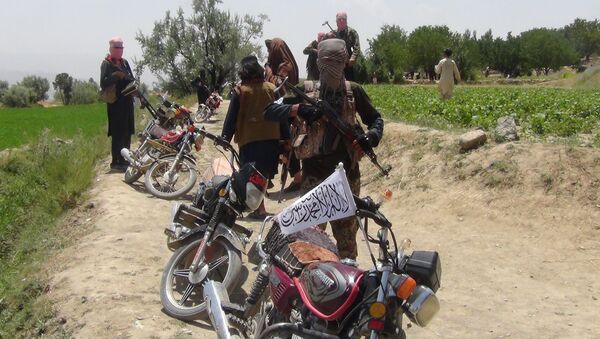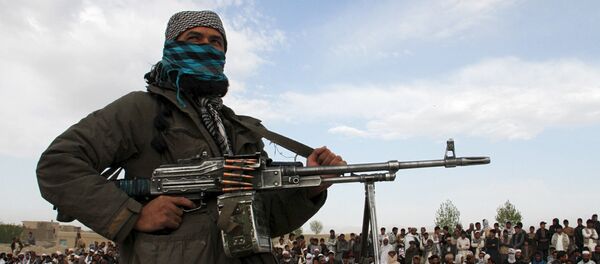US and Taliban officials have engaged in six rounds of peace talks in Qatar thus far in an attempt to reach a modus vivendi in Afghanistan and facilitate an exit plan for US forces from a 17-year-long war.
However, news emerged Wednesday that the Pentagon sought to reimburse the militant group for the costs of travel from Afghanistan to Qatar, which sits on the Persian Gulf. That would include not only transportation, but also lodging, food and other supplies, Tribune News Service reported.
"The Defense Department requested fiscal 2020 funding to support certain reconciliation activities, including logistic support for members of the Taliban and, in March 2019, they sent a notification letter to the committee on using fiscal year 2019 funds for similar activities," said Kevin Spicer, a spokesman for Rep. Peter J. Visclosky (D-IN), in a statement to CQ Roll Call Wednesday.
Visclosky chairs the House Appropriations Subcommittee on Defense, which on Wednesday approved a $690.2 billion budget for defense spending in Fiscal Year 2020 that explicitly bars funding for reimbursing the Taliban.
Spicer said the request "would implicate provisions of law concerning material support to terrorists, the Taliban's ongoing offensive operations against US service members, and their continuing lack of acknowledgement of the government of Afghanistan or the rights of women in Afghan society."
It's not like the Taliban needs the help, either. The group generates roughly $800 million a year through the opium trade, Business Insider reported.
The Taliban ruled Afghanistan for roughly five years, from 1996 until 2001, rising out of the chaos of the civil war that raged through the 1980s, in which the socialist Democratic Republic of Afghanistan and their Soviet Red Army allies fought the Mujahideen, or anti-secular Muslim militant groups in rebellion. The strictly fundamentalist Sunni Taliban instituted very restrictive laws during their rule, barring women from public appearance, punishing offenses like stealing with amputation or execution, and heavily persecuting the Hazara ethnic group, most of whom are Shiite Muslims.
The Taliban also sponsored terrorist groups, permitting al-Qaeda and other organizations to train inside the country. After the September 11, 2001, terrorist attacks, which destroyed the World Trade Tower in New York, damaged the Pentagon and killed 3,000 people, the US invaded Afghanistan in October 2001 to destroy al-Qaeda and the Taliban government that had provided them refuge.
However, that victory has yet to be achieved, and war has raged between a new Afghan central government, which is closely allied to Washington, and the Taliban and other militant groups. It's estimated the war has killed or indirectly caused the deaths of hundreds of thousands of people and forced millions to flee the country. The most recent reports suggest the Taliban is gaining ground, but the US-led mission in Afghanistan recently stopped reporting those numbers.
"Even if you leave aside that they are still conducting operations against our interests and allies, having to pay for someone to be at the table undercuts our bargaining position and demonstrates their lack of enthusiasm for a deal," Steve Ellis, executive vice president of Taxpayers for Common Sense, told Roll Call.
"I'm sure the Taliban would like whatever cash we're willing to give them, but it's not like they aren't able to continue funding their fighting. How about using some of that cash instead of American taxpayer dollars?"





